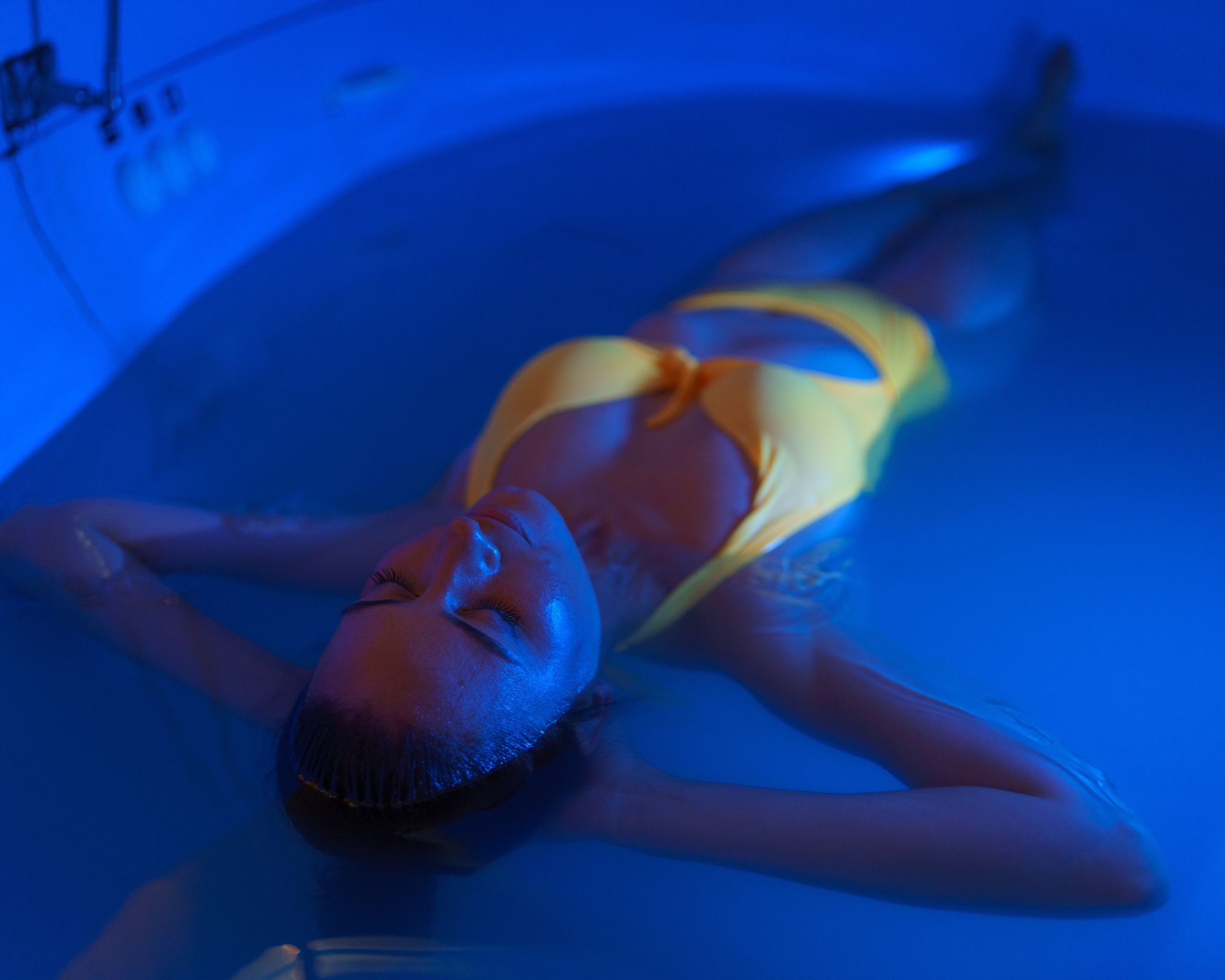Sensory Deprivation Float Tank

Sensory deprivation float therapy, also known as floatation REST (Restricted Environmental Stimulation Therapy), is a unique wellness practice that offers a multitude of benefits. It involves spending time in a sensory deprivation tank filled with salt water, which allows you to float effortlessly, reducing external stimuli to a minimum. This environment can induce deep relaxation, manage anxiety and pain, improve sleep, and even boost heart health.
The therapy can enhance creativity by slowing down secondary thought processes, allowing room for primary processes such as intuition and imagination. It can also improve concentration and focus, as the absence of distractions may allow you to sharpen your thinking and enhance goal orientation. Moreover, it's been found to aid in physical recovery and alleviate the psychological stress and strain of competition, making it a popular choice among athletes.
BENEFITS of Sensory deprivation therapy
Deep Relaxation
The float tank environment reduces external stimuli, allowing your body and mind to reach a state of deep relaxation.
Stress Reduction
By promoting deep relaxation, sensory deprivation therapy can help reduce stress and anxiety levels.
Pain Relief
The buoyancy provided by the saltwater in the float tank can relieve tension in the muscles and joints, helping to alleviate chronic pain.
Improved Sleep
Regular floatation therapy can help improve sleep quality by promoting relaxation and reducing anxiety.
Enhanced Creativity
The quiet, distraction-free environment of the float tank can stimulate creativity and problem-solving abilities.
Improved Focus and Concentration
By reducing external stimuli, floatation therapy can help improve focus and concentration.
Mental Health Benefits
Sensory deprivation therapy can help manage symptoms of mental health conditions like depression and anxiety.
Physical Recovery
Floatation therapy can aid in physical recovery, making it a popular choice among athletes for muscle recovery and rehabilitation.
FAQ
Is sensory deprivation safe?
Yes, float tank therapy is generally safe for most people. The high salt content of the water makes it naturally antibacterial, and most float centers follow strict hygiene protocols.
What is float tank therapy?
Float tank therapy, also known as sensory deprivation therapy, is a wellness practice where you float in a tank filled with saltwater that matches your body temperature. This environment reduces external stimuli, allowing you to relax deeply and focus inward.
CONTACT
(7:00 am – 6:30 pm
Monday - Friday)
(8:00 am - 3:00 pm Saturday)


